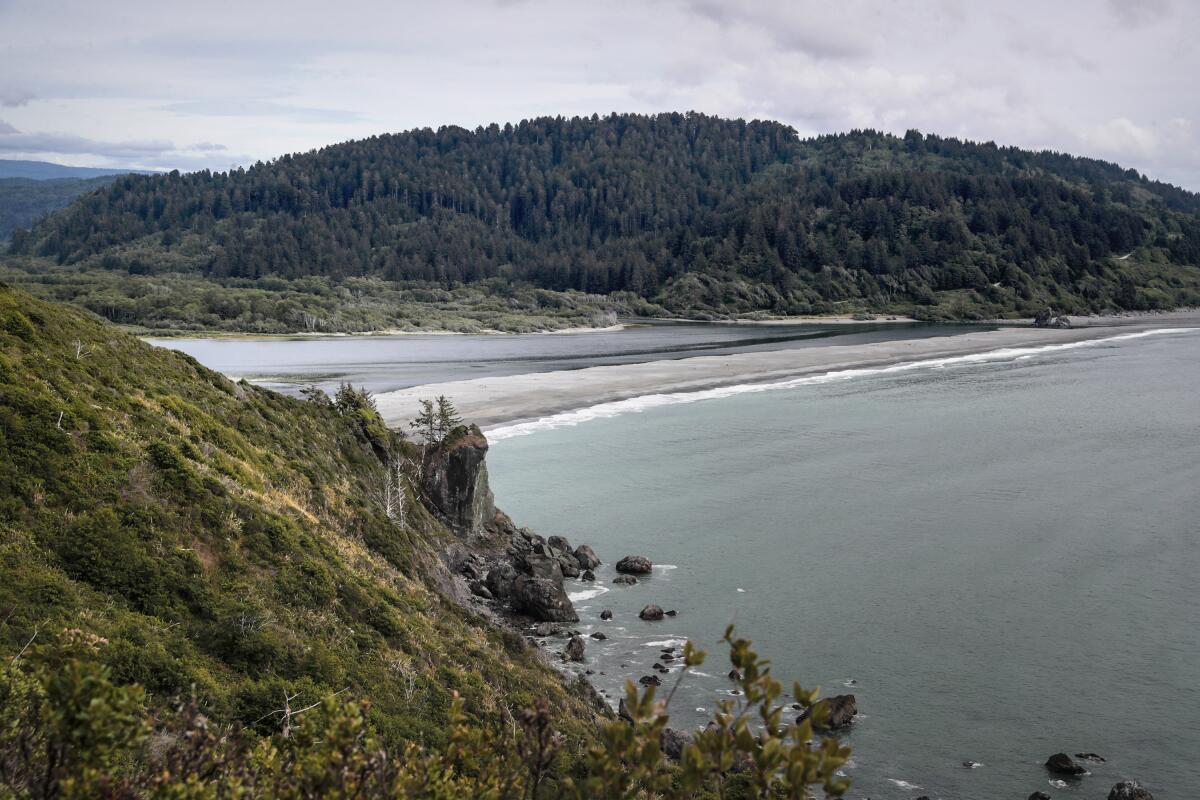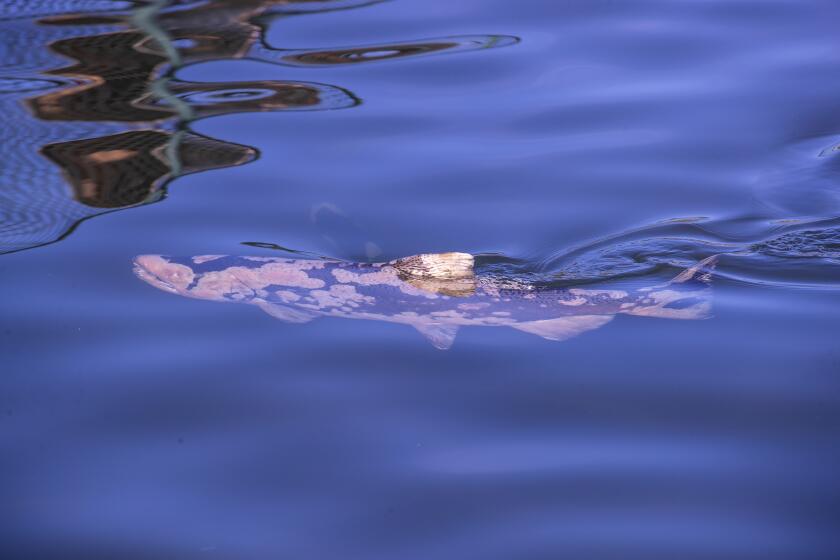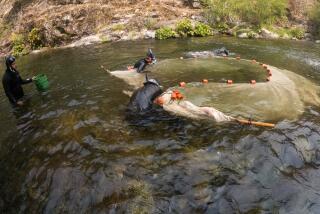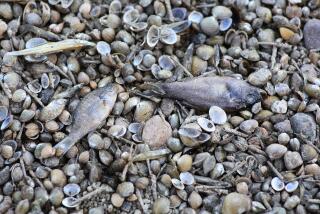California Salmon Festival will be missing something this year: Salmon

- Share via
The Yurok Tribe has held its annual Klamath Salmon Festival in Northern California for more than half a century. But this August, salmon won’t be on the menu.
Tribal leaders say that’s because the Klamath River’s forecasted fish run is one of the lowest on record.
In a statement, the Yurok Tribe noted that Chinook salmon runs are in decline on the Klamath River and throughout the West Coast.
They cited a combination of factors, including dams, habitat loss, disease outbreaks, excessive water diversions, water quality issues, fish passage barriers on tributaries, and environmental damage caused by past logging and mining operations.
“This decision reflects our sacred responsibility to take care of the Klamath River’s fish stocks,” Joseph L. James, chairman of the Yurok Tribe, said in a statement. “In addition to not catching fish for the festival, we will not harvest any Klamath salmon this year to protect the fish population.”
This is the third time since 2016 that there will not be any salmon served at the festival, according to KRCR-TV. The festival typically draws about 3,500 attendees.
Similar issues are playing out across the state.
Earlier this year, salmon fishing was banned along the California coast as the population plummeted. It was only the second time in history that the ocean salmon fishery had been closed in California, and the decision reflected a major decline in fish populations after the state’s driest three-year period on record.
California’s Chinook salmon population is suffering, forcing the cancellation of the fishing season along the Pacific coast.
The California Department of Fish and Wildlife said the estimated number of 3-year-old adults that were likely to return to the Sacramento River this year to spawn was less than 170,000, one of the lowest forecasts in the 15 years that officials have been using their current assessment method.
Officials estimated fewer than 104,000 fall-run Chinook were likely to return to the Klamath River, the second-lowest estimate since 1997.
In June, the Yurok Tribe canceled its 2023 subsistence and commercial fisheries as a conservation measure. Since 2015, it has closed the commercial fishery every year, except one, to preserve fish runs, according to the tribe’s statement.
“During all but one of the last eight years, the Tribe’s extremely limited subsistence harvests also did not come close to satisfying the needs of the Yurok people,” the statement read. “In many years, the subsistence quotas amounted to less than one fish per member of the Tribe.”
Many Yurok families depend on the fishery, officials said. The nearest grocery store is a one- to three-hour trip from the reservation’s population centers, they said. Another effect they cited is the loss of family time spent on the river participating in a traditional custom.
Deep in California’s coastal woods near the Oregon border, the reservation straddles the mighty Klamath River, the tribe’s lifeblood for centuries.
Despite those concerns, tribal leaders were also optimistic about the future. They pointed to construction crews who are dismantling four dams on the Klamath River “in what will be the largest salmon restoration project in world history.”
“By the end of 2024, the Klamath will flow free for the first time in more than a century, and salmon will have access to approximately 400 miles of previously blocked salmon-spawning habitat,” the statement read.
The Yurok Fisheries Department and Yurok Construction Corp., along with the Trinity River Restoration Program and Hoopa Valley Tribe, are also implementing a large-scale restoration project on the Trinity River, the Klamath’s largest tributary, officials said.
As that work continues, the 59th annual Klamath Salmon Festival will carry on. Set for Aug. 19, this year’s event has the theme, “Celebrating Dam Removal and the Healing of the Klamath River.”
Times staff writer Ian James contributed to this report.
More to Read
Sign up for Essential California
The most important California stories and recommendations in your inbox every morning.
You may occasionally receive promotional content from the Los Angeles Times.












